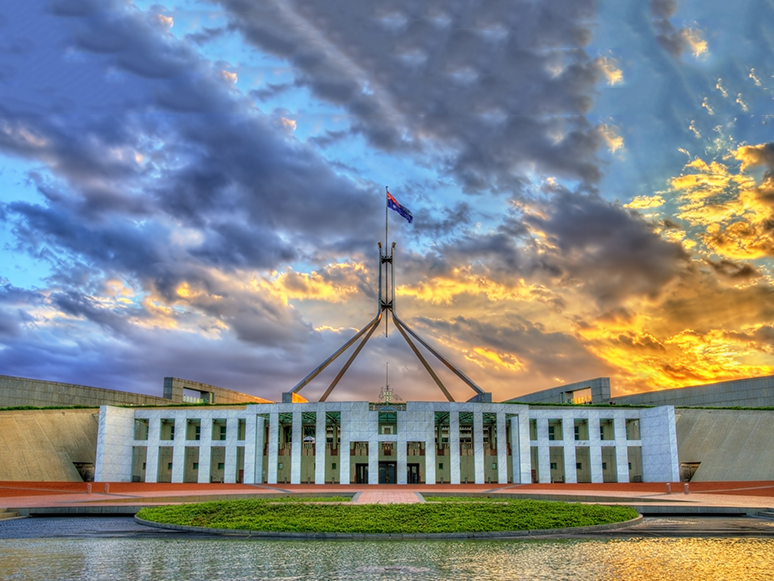logo


15th Aug, 2020

On 23 July 2020, Federal Treasurer Josh Frydenberg released the Economic and Fiscal Update July 2020, outlining the key COVID-19 policy response measures announced by the Government since March 2020. The Treasurer said the Government has provided economic support for workers, households and businesses of around $289 billion (14.6% of gross domestic product) in response to the pandemic.
The economic update incorporated the extension of JobKeeper payments for six months beyond its legislated finish date of 27 September 2020. The total cost of the extended JobKeeper regime is now estimated to be $85.7 billion over 2019–2020 and 2020–2021.
While the update did not include any major new financial support measure announcements, it brought information about a range of other changes, including that:
The Economic and Fiscal Update was never meant to be a “mini budget”, and the Federal Budget will be handed down on 6 October 2020. Mr Frydenberg has previously indicated that the Government is looking at the timing of the legislated personal income tax cuts and may consider bringing them forward as part of the Budget in October.
15th Aug, 2020

If you’ve purchased assets for your business, remember that you may be eligible to claim an immediate deduction in your 2019–2020 and 2020– 2021 tax returns under the instant asset write-off, which was recently further expanded.
From 12 March to 31 December 2020 inclusive, the instant asset write-off threshold for each asset increased to $150,000 (up from $30,000) for business entities with aggregated annual turnover of less than
$500 million (up from $50 million). To get it right, remember:
15th Aug, 2020

The Government has announced that JobKeeper payments will continue for six months beyond the legislated finish date of 27 September 2020, subject to revamped eligibility rules. Treasurer Josh Frydenberg said the Government will introduce two tiers of payment rates as part of “JobKeeper 2.0” to better reflect the pre-COVID-19 incomes of recipients.
The extension of JobKeeper from 28 September 2020 until 28 March 2021 will also include a requirement for businesses and not-for-profits to demonstrate an actual decline (not merely predict a decline) in turnover under the existing turnover test. The JobKeeper payment will also be stepped down and paid at two rates. Importantly, the existing arrangements for those receiving JobKeeper payments continue until
27 September 2020.
The JobKeeper payment ($1,500 per fortnight until 27 September) is to be reduced and paid at two rates.
| Period | Rate per fortnight (full) | Rate per fortnight (<20 hours worked per week) |
| 28 September 2020 to 3 January 2021 | $1,200 | $750 |
| 4 January 2021 to 28 March 2021 | $1,000 | $650 |
Businesses and not-for-profits will be required to nominate which payment rate they are claiming for each of their eligible employees (or business participants) and will have to meet a further decline in turnover test for each of the two periods of extension.
The eligibility rules for employees remain unchanged. Self-employed people will be eligible to receive the JobKeeper payment where they meet the relevant turnover test and are not a permanent employee of another employer.
15th Aug, 2020

The ATO’s key JobKeeper information has been updated to note that payments for childcare providers stop from 20 July 2020.
This follows the Government’s changes to transition certain approved providers of childcare services out of the JobKeeper scheme. The Government has instead decided to extend separate support to this sector by reintroducing the Child Care Subsidy and adding a Transition Payment as part of the Early Childhood Education and Care transition arrangements.
The changes mean that eligibility for JobKeeper payments ends from 20 July for:
Childcare providers need to ensure that they do not claim JobKeeper for employees and eligible business participants who are no longer eligible. Likewise, childcare providers will not be reimbursed for payments made after JobKeeper Fortnight 8 (6 to 19 July 2020).
15th Aug, 2020

The Government has announced that it will extend the temporary Coronavirus Supplement payment from 25 September to 31 December 2020 but the rate will be reduced from $550 to $250 per fortnight.
Since 27 April 2020, a Coronavirus Supplement of $550 per fortnight has effectively doubled the social security payments for job seekers, sole traders and students in receipt of the JobSeeker Payment, Sickness Allowance, Youth Allowance for jobseekers, Parenting Payment Partnered, Parenting Payment Single, Partner Allowance, Sickness Allowance and the Farm Household Allowance. Individuals eligible for these payments receive the full amount of the $550 Coronavirus Supplement on top of their payment each fortnight.
The Supplement will continue to be $550 per fortnight for payments up to and including the reporting period ending 24 September 2020. From 25 September to 31 December 2020, the Government will continue to pay the Supplement to existing and new income support recipients but at a reduced rate of $250 per fortnight.
The Government will also reintroduce a range of means testing, tapering and mutual obligation arrangements to ensure that social security payments are appropriately targeted.
15th Aug, 2020

The ATO is on the look-out for fraudulent schemes designed to take advantage of the Government’s COVID-19 stimulus measures. This includes JobKeeper, early release of superannuation, and boosting cash flow for employers.
The ATO will be using its wide array of data sources to assess and identify inappropriate behaviour. It has also established a confidential tip-off line for the public to raise concerns of any wrongdoing.
“We’ve received intelligence about a number of dodgy schemes, including the withdrawal of money from superannuation and re-contributing it to get a tax deduction. Not only is this not in the spirit of the measure (which is designed to assist those experiencing hardship), severe penalties can be applied to tax avoidance schemes or those found to be breaking the law. If someone recommends something like this that seems too good to be true, well, it probably is”, ATO Deputy Commissioner Will Day said.
Mr Day said the ATO will be conducting checks, “so if you’ve received a benefit as part of the COVID-19 stimulus measures and we discover you are ineligible, you can expect to hear from us. If you think this may apply to you, you should contact us or speak to your tax professional”. Penalties for fraud can include financial penalties and prosecution, and even imprisonment for the most serious cases.